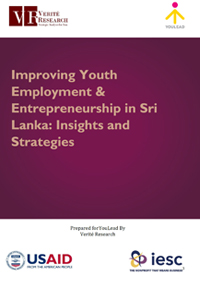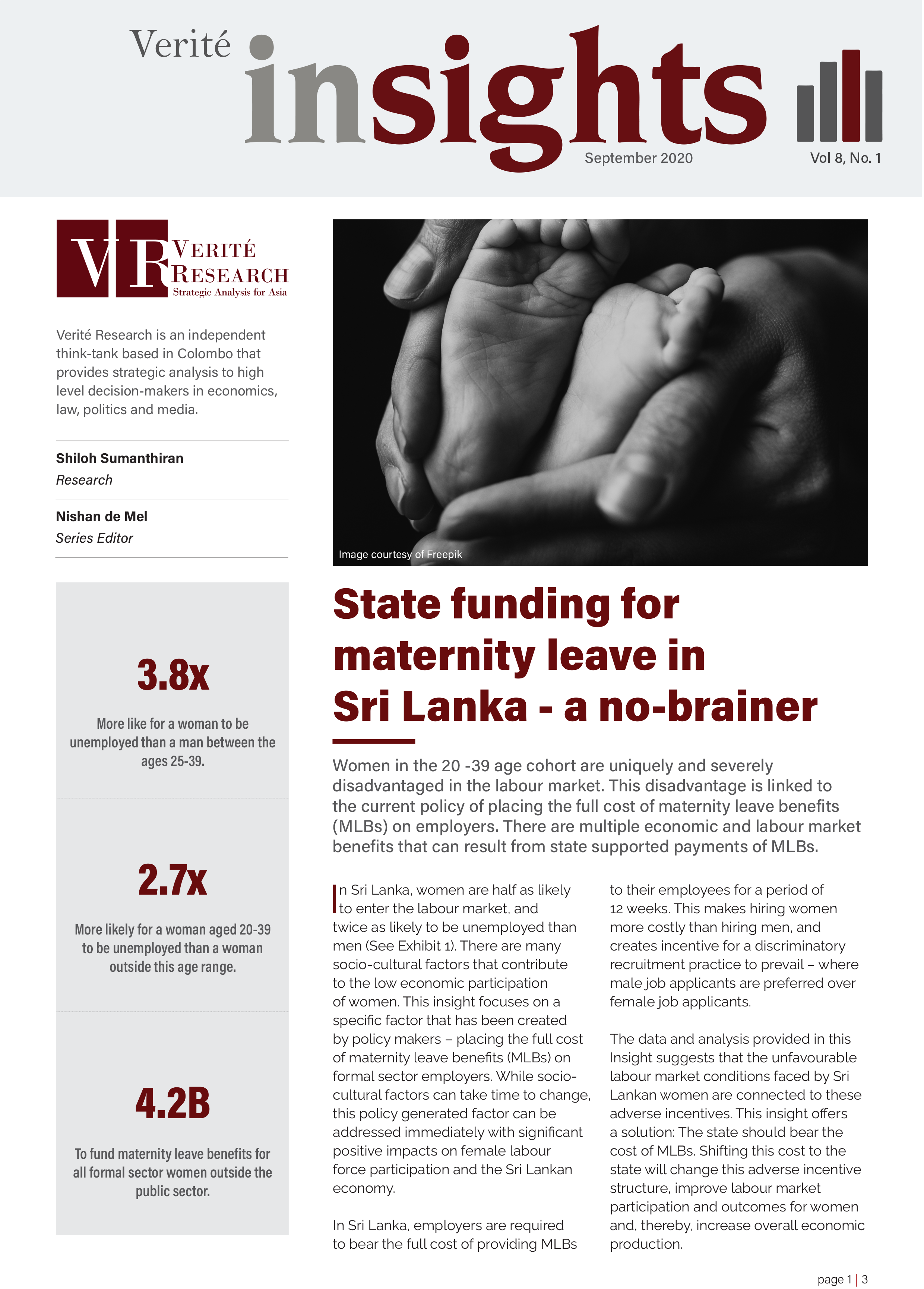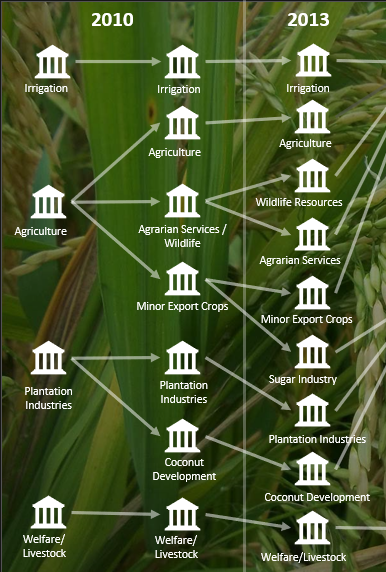This report provides an assessment and analysis of the fiscal, financial and economic assumptions and estimates applied in the formulation of the 2021 Budget.
Building on the Youth Labour Market Assessment published by Verite Research in 2018, this report focuses on a series of specific issues that represent key barriers to increasing youth employment and youth employability in Sri Lanka. Given the potential of youth entrepreneurship to serve as a key driver for increasing the labour force participation of youth, including young women, the current report also investigates key challenges and opportunities for increasing youth entrepreneurship in Sri Lanka.
Successful economies have increasingly recognised the importance of improving access to data collected by governments. Accurate, timely and easily accessible data helps private sector growth and results in improved delivery by government. Sri Lanka Customs is the key government agency that collects trade data. Access to timely trade data is vital for firms engaging in international trade to make sound business decisions. It is also the basis on which countries should be formulating their trade policies and assessing their impact.
Sri Lanka is highly dependent on international loans from multilateral and bilateral sources to finance infrastructure development. Multilateral and bilateral borrowing is often favoured by governments such as Sri Lanka because such financing tends to have ‘concessional’ elements, relative to the international financial markets. However, this report finds that the practice of ‘tying’ loans to procurement from contractors in the lending country and resulting cost escalations can significantly erode the concessional or grant element of these loans.
Sri Lanka is highly dependent on international loans from multilateral and bilateral sources to finance infrastructure development. Multilateral and bilateral borrowing is often favoured by governments such as Sri Lanka because such financing tends to have ‘concessional’ elements, relative to the international financial markets. However, this report finds that the practice of ‘tying’ loans to procurement from contractors in the lending country and resulting cost escalations can significantly erode the concessional or grant element of these loans.
Women in the 20-39 age cohort are uniquely and severely disadvantaged in the labour market in Sri Lanka. This disadvantage is linked to the current policy of placing the full cost of maternity leave benefits (MLBs) on employers.
Ministries are the overarching bodies that house relevant government institutions and functions within a particular subject area. They are responsible for the formulation, implementation, monitoring, and evaluation of national-level policies and strategies in their assigned sectors (such as health, education, and agriculture). In this regard, they coordinate with the institutions under their purview. Therefore, ministries—and by extension ministers—are vital to determining the institutional effectiveness and efficiency of service delivery by the public sector. However, public sentiment suggests otherwise. Public sector inefficiency has been a long-standing issue that successive governments in Sri Lanka have failed to address effectively. The general perception of the public is that the elected representatives who run government make an already inefficient system worse, and this perception is becoming more entrenched with time. The present paper seeks to address this gap between expectations of the role of ministers and ministries and reality as experienced and perceived by society. It highlights two types of problems that comprise the irrationality of present cabinet formation and seeks to address how effective and efficient governance in the public sector can be achieved. A Blueprint document that proposes a formulated rational structure for government, building on and refining the recommendations of the…
රජයේ කි්රයාකාරීත්වය ඵලදායී සහ කාර්යක්ෂම මට්ටමක පවතින බව සහතික කිරීම සදහා කැබිනට් මණ්ඩලය ලබාදෙන දායකත්වය සුලූපටු නැත. නමුත් අප සිදුකළ පර්යේෂණයකින් අනාවරණය වූ ආකාරයට පසුගිය වසර කිහිපයේ මෙරට ඇති කෙරුණු කැබිනට් මණ්ඩලවලින් එවැනි දායකත්වයක් ලැබී නොමැත.
The role played by the Cabinet of Ministers is critical to ensure that the government functions efficiently and effectively. Verité Research has found that the way in which Cabinet portfolios are designed in Sri Lanka impedes the ability of government to be effective.
International trade data are the foundational basis when formulating trade policies and assessing their impacts. Trade data is vital for firms engaging in international trade to make sound business decisions. Unfortunately, when compared to regional and international best practice, Sri Lanka is failing to use trade data effectively for the benefit of the country.







